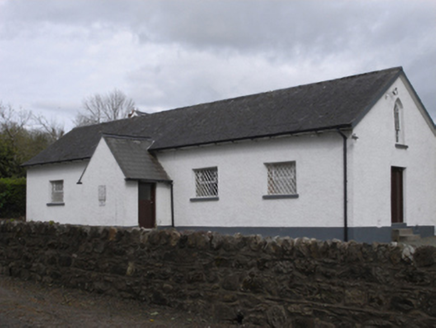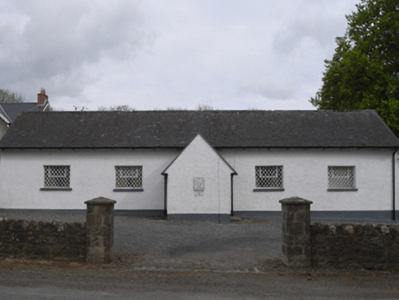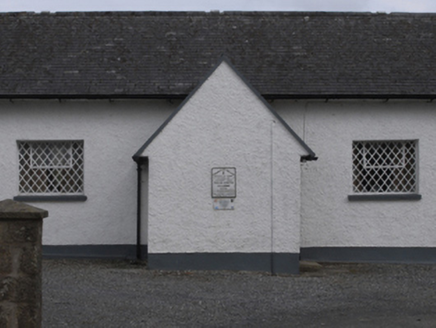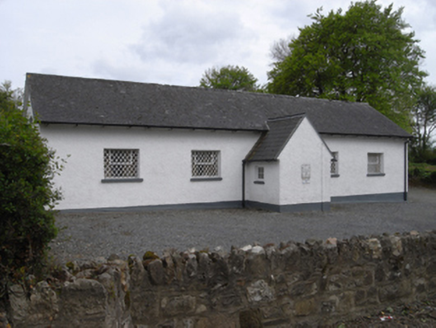Survey Data
Reg No
15701816
Rating
Regional
Categories of Special Interest
Architectural, Historical, Social
Original Use
School
Date
1820 - 1825
Coordinates
285321, 141939
Date Recorded
28/08/2007
Date Updated
--/--/--
Description
Detached five-bay single-storey school house with half-dormer attic, built 1823, on a T-shaped plan centred on single-bay single-storey gabled projecting lower porch. Occupied, 1901; 1911. Closed, 1969. Now disused. Pitched slate roof on a T-shaped plan centred on pitched (gabled) slate roof (porch), clay ridge tiles, and cast-iron rainwater goods on rendered slate flagged eaves retaining cast-iron downpipes. Roughcast walls on rendered plinth. Square-headed window openings with cut-granite sills, and concealed dressings framing fixed-pane fittings having cast-iron lattice glazing bars. Pointed-arch window openings (gables) with cut-granite sills, and concealed dressings framing six-over-six timber sash windows without horns having interlocking Y-tracery glazing bars. Set back from line of road with repointed piers to perimeter having shallow pyramidal capping.
Appraisal
A school house 'erected by subscription' (Lewis 1837 II, 124) representing an important component of the early nineteenth-century built heritage of Killann with the architectural value of the composition confirmed by such attributes as the symmetrical footprint centred on an expressed porch; and the "pointed" profile of the openings underpinning a contemporary Georgian Gothic theme with those openings showing pretty Churchwarden glazing patterns. Having been well maintained, the elementary form and massing survive intact together with substantial quantities of the original fabric, thus upholding the character or integrity of a school house making a pleasing visual statement in a rural village street scene. NOTE: The school house remains of additional interest for two periods of occupation as a temporary military outpost with the first occasion (1833) in response to agrarian unrest by the so-called "Whitefeet" and the second occasion (1923) during "The Troubles" (1919-23).







